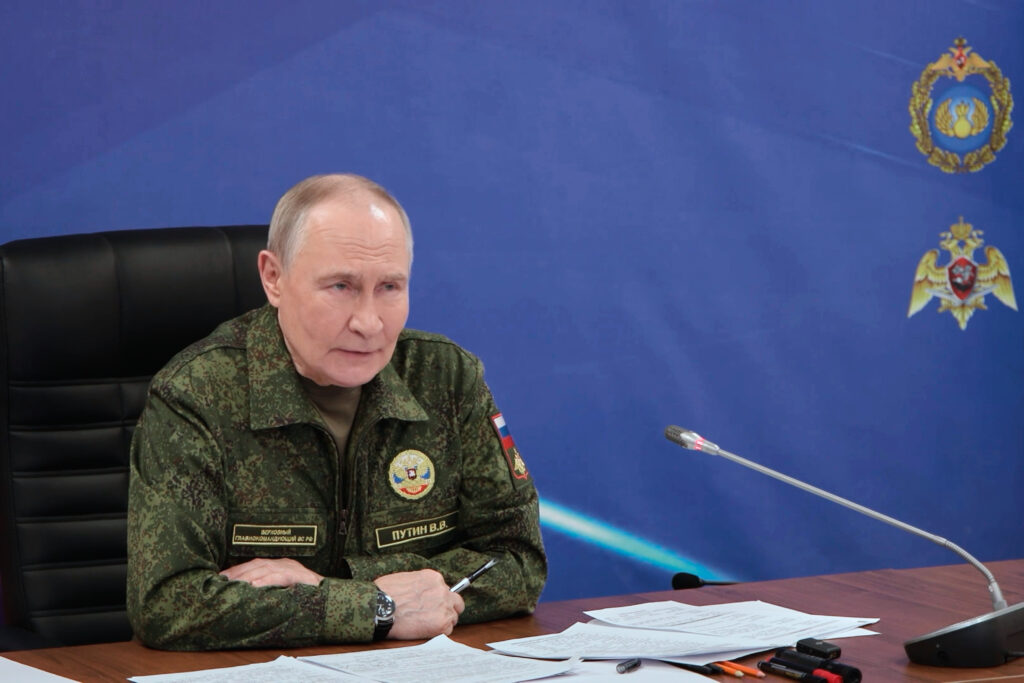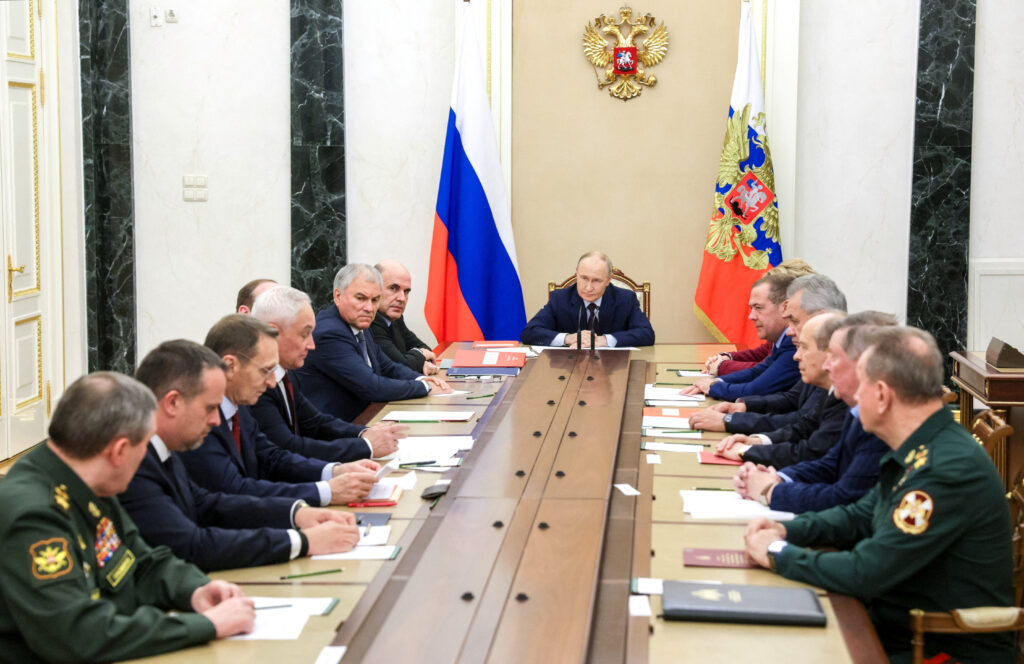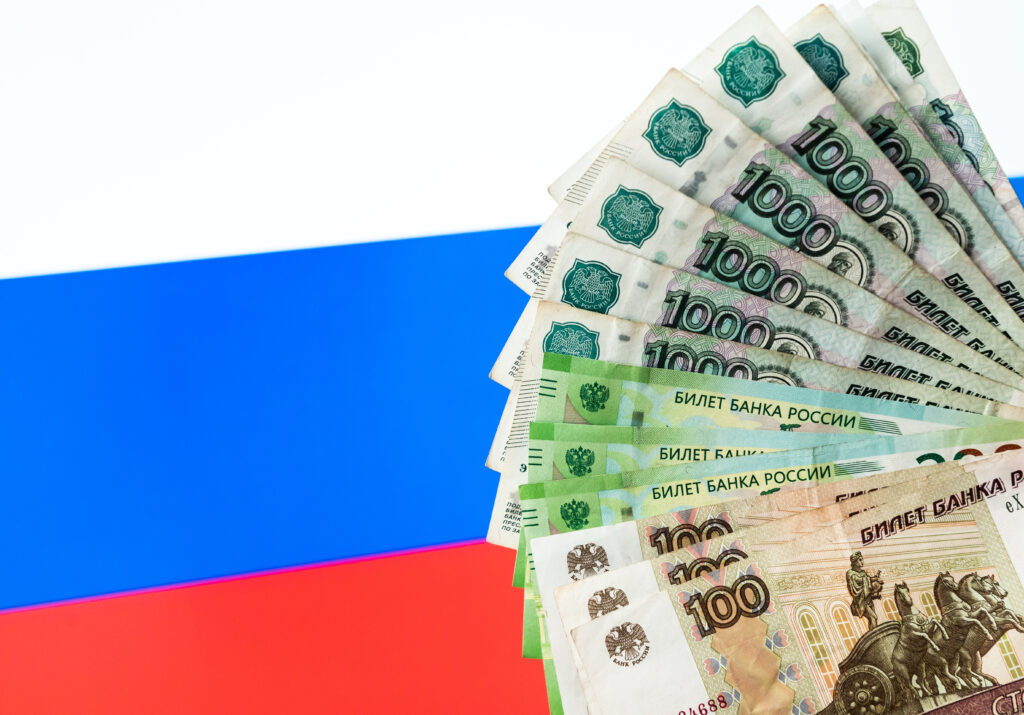“For my friends facts, unreality for my foes”. This could be the motto of Russia’s weaponization of information in the wake of the so-called “Ukraine crisis”. The underlying assumption is that President Vladimir Putin possesses complete information. While from an outside perspective this sounds plausible, Russia watchers need to take into account that Putin depends on information provided to him by his administration and the various intelligence services. What if the old Leninist distinction between “official” and “unofficial” information is becoming less and less meaningful, and the president has a problem with “full and truthful information”?
Information and regime stability
Despite, or rather because of, the omnipresence of black PR, political “dramaturgiia” and kompromat (compromising material), information is a scarce good in non-democratic regimes. Authoritarian stability is maintained not only by economic performance or other forms of legitimacy as-well as co-optation of influential elite groups, but also by repressing public dissent and free expression of opinion.
This paucity of information is problematic: First, due to the mechanisms of gaining and maintaining power, the detection of preferences of private voters as well as elite groups is complicated, hence there is danger that the incumbent misses collective action potential such as strikes or mass protests among the population or a “palace coup” from rivalling elite groups. Secondly, particularly in large states with numerous subnational entities such as the Russian Federation, regional elites strive to maximize their own gain, and the center needs to invest significant efforts to assess their performance, and loyalty (take Kadyrov vs. federal siloviki).
To solve this information issue the incumbent basically has three mechanisms at his disposal: Elections, ratings, and as of recently, social media.
Regular elections
“Under dictatorship, parties do not compete, elections do not elect, and legislatures do not legislate,” wrote the political scientists Jennifer Gandhi and Adam Przeworski. This, however, does not mean that elections are mere window-dressing meant to simulate democracy. Even if they are not free and fair, elections serve an informational role that reduces the risk of the incumbent autocrat “of violent removal from office”. The information gathered during elections can be used to identify bases of support and constituencies with high support for the opposition. Using carrots and sticks, the former can be rewarded with spoils of the patronal state such as budget funds or posts, the latter punished with dismissals, or jail.
Ratings
Russian presidents, and their advisors, are obsessed with ratings. This infatuation with public opinion under Putin has been dubbed “ratingocracy”: PR for the president is based on information from opinion polls and tailored to “construct a feedback loop with Russia’s diverse societal and political constituencies”. Putin’s annual call-in should thus not be seen as a meaningless show, but as a gigantic opinion poll, the answers of which are carefully analyzed internally. Opinion surveys by pollsters such as Levada, VTsIOM or FOM are publicly available and are, even if flawed due to fear and conformism of respondents, momentous sources of legitimation. But some are commissioned by the Presidential administration for internal decision making, and their methodology differs significantly to deliver more accurate results. The decision by Putin to hold the Crimea referendum was made only after sociological studies had been conducted on the peninsula. Other important rankings include ratings of governors and meticulous control of the implementation of presidential normative acts by the Monitoring Department.
Social media
While the internet and later social media had once been idealized as catalysts for protests and regime change, authoritarian regimes have quickly learned to use them for their own purposes, namely regime stability. Harvard’s Gary King and his colleagues convincingly demonstrated that in China social media can be an excellent way to obtain information about views of the population on public policies and experiences with the state. Criticism of the state and its leaders is allowed – massive censorship kicks in only when comments on social media represent, reinforce, or spur social mobilization.
In Russia, Viacheslav Volodin introduced “Prizma” in the presidential administration in 2012, a Russian software able to screen up to 40 million Russian-language social media. Konstantin Kostin, who had worked with Prizma in the Kremlin’s Department of Internal Affairs, employs Crimson Hexagon for sentiment analysis and topic clustering at his Civil Society Development Foundation, a think tank with close ties to the presidential administration.
The Ukraine crisis and information
There are increasing signs that Putin is more and more detached from what is going on in the country because he is briefed with partial evidence or bad assessment. He may still act rationally, but in some instances he believes false evidence such as a purported statement by Madeleine Albright that was traced back to Russian mind-readers.
The 2011/2012 electoral protests demonstrated that a significant number of voters managed to coordinate and mobilize despite administrative control of the traditional media pointing to serious flaws in the previous feedback system. A liberalization in the aftermath of the protests would have meant opening up the political machine of the regime, but instead, the path taken is one which promotes loyalty instead of competence and representation of discontent parts of society and elite. While political protests are unlikely in the near future and federal elections are only scheduled for 2016 and 2018, socio-economic rallies are increasingly imminent and point to a widening communication gap.
Public opinion surveys failed to predict the 2011/2012 protest movements and Navalny’s success in the Moscow mayoral elections 2013. Only a research team around Mikhail Dmitriev pointed to protest potential before they erupted in 2011, but they used focus groups as a method. Putin’s high approval ratings which reached 84% are an anomaly and a form of negative mobilization during extraordinary times. Although this seems to signal overwhelming support for the regime, these 84% are actually more dangerous for the regime than the other 16%, because very little is known about them except for them being yea-sayers. Perpetualizing these extraordinary times by conjuring up internal and external enemies fundamentally corrupts the feedback loop public opinion can provide.
Russia does not possess an army of censors like China does for monitoring social media. Russia seemingly focuses less on gathering information, preferring to disinform with its St. Petersburg troll army, tinkering with Wikipedia entries and the like. The “Law on Bloggers” which came into force in August 2014 also points to the tendency for general control and pressure rather than tackling only those with collective action potential.
The EU should take Russia’s weaponization of information seriously. Analysts in the EU should carefully monitor which elite groups collect and control the flow of information in Russia, and to whom information is channeled. However, Putin’s information weaponization also poses a threat on a domestic level – the menace of unreality will sooner or later backfire on the Putin regime itself. The blurring of fact and fiction and the use of disinformation significantly compromises the regime’s ability to collect information via elections, ratings and social media. By weaponizing information, the Putin regime may have shot itself in the foot as Russian ‘unreality’ is as much a threat to Putin himself as it is to the EU.










